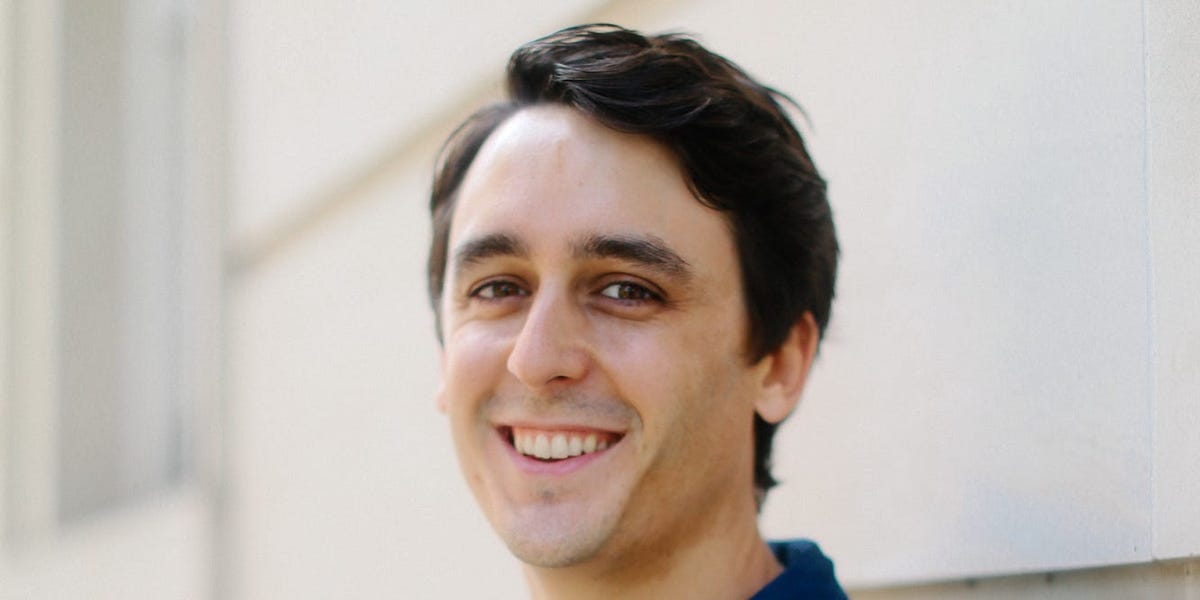In 2018, Nathan Benaich struggled to convince investors to back his new solo investment fund.
“Fundraising for that first-time fund was basically like playing pinball with your eyes closed,” he told Business Insider.
“You’re relying on the fact that the pins on the board have been placed correctly, but I have no idea because all this is stochastic.”
Those who did back his first $26 million fund have been rewarded. Benaich, through his firm Air Street Capital, has already cashed out on early bets on two now-public companies in the form of drug discovery businesses Exscientia and Recursion.
His portfolio is also stuffed with AI unicorns like Nvidia rival Graphcore, speculated to be up for sale, Stability AI, the parent company behind image generator Stable Diffusion, also weighing up a sale, and hyped machine learning startup Adept AI.
Benaich is now among Europe’s most in-demand early-stage investors. Five years on from its fundraising troubles, Air Street Capital is deploying its $121 million second fund, which counts the likes of Spotify CEO Daniel Ek, Google AI lead Jeff Dean, and angels from OpenAI and Hugging Face among its backers.
Specializing into generalism
Much of the 35-year-old’s education is rooted in biology. He holds a degree in it from Massachusetts-based Williams College as well as a PhD in computational biology from Cambridge University.
His first foray into investing came through London-based Playfair Capital just as the venture market was recovering from the financial crisis. The Swiss native soon realized that choosing a domain of expertise would help him stand out, and later “earn the right to be a generalist.”
Google’s $500 million splurge on AI research lab DeepMind in 2014 was a watershed moment for Benaich.
“It was pretty monumental for the industry,” he said, adding that he saw its cofounder and CEO Demis Hassabis as an “incredible flagbearer for the field.”
The DeepMind deal encouraged Benaich to focus on AI, an area he’s made some shrewd investments in to date. Benaich backed Synthesia, a $1 billion video AI startup, self-driving tech startup Wayve, and computer vision business Tractable, in the earlier days of his career. He had invested for around five years before he eventually launched his own fund.
Air Street Capital was buoyed by OpenAI’s launch of ChatGPT in November 2022, which kickstarted a frenzy among investors for AI tech. Benaich, who had a sturdy AI portfolio and a PhD in the relevant scientific field, found himself perfectly positioned to benefit from the boom and raised his second fund.
When pitching to LPs, Benaich took a fair few lessons from his “first slog,” he said. “What I tried to be very explicit about was what I wanted to do with that money, and then show people that I did it.”
He doesn’t bill himself as a high-volume investor, but it’s something that’s helped his case, he added.
A rare breed
Benaich is selective about the founders he backs because he ultimately meshes into an invisible member of the startup’s team, said Rafael Carazo Salas, cofounder and CEO of AI drug discovery startup CellVoyant, which is backed by Air Street Capital.
“He’s a rare breed, and his superpower as an investor is that he can identify companies that are distinct enough to fill the gap that’s missing,” Salas told BI. “He’s available around the clock and he expects the same.”
His founders look up to this ability to “stay switched on” at all times.
“There are times in which, on a weekend at like 11 pm or 1am, I’ll WhatsApp him something and he’ll respond within two minutes,” said Alberto Rizzoli, founder of computer vision startup V7, another Air Street portfolio company. “And what this leads to is that it’s just a continuous stream of insights or information.”
Benaich recognizes that a lot of a startup’s success hinges on the founders he backs — and he has a preference for the technically savvy, pragmatic kind that solve real-world issues.
“You have to index the data on who’s at the wheel, because you can’t change that,” he told BI.
A global AI investing strategy
Benaich said working solely with European institutional investors wasn’t enough for his mission of backing the most promising early-stage AI upstarts.
Raising the second fund could not have been possible with purely Europeans — and it’s important for the ecosystem to work with US institutional investors, he added. Air Street’s second fund aims to deploy capital to companies in North America and Europe — two hotbeds for AI talent.
For the most part, Benaich has avoided much of the investor FOMO for sought-after AI juggernauts, but there’s a company that immediately came to mind in his antiportfolio.
“The biggest past regret I have is ElevenLabs, and I very quickly misjudged the scale of the opportunity,” he laughed.
Read the full article here





